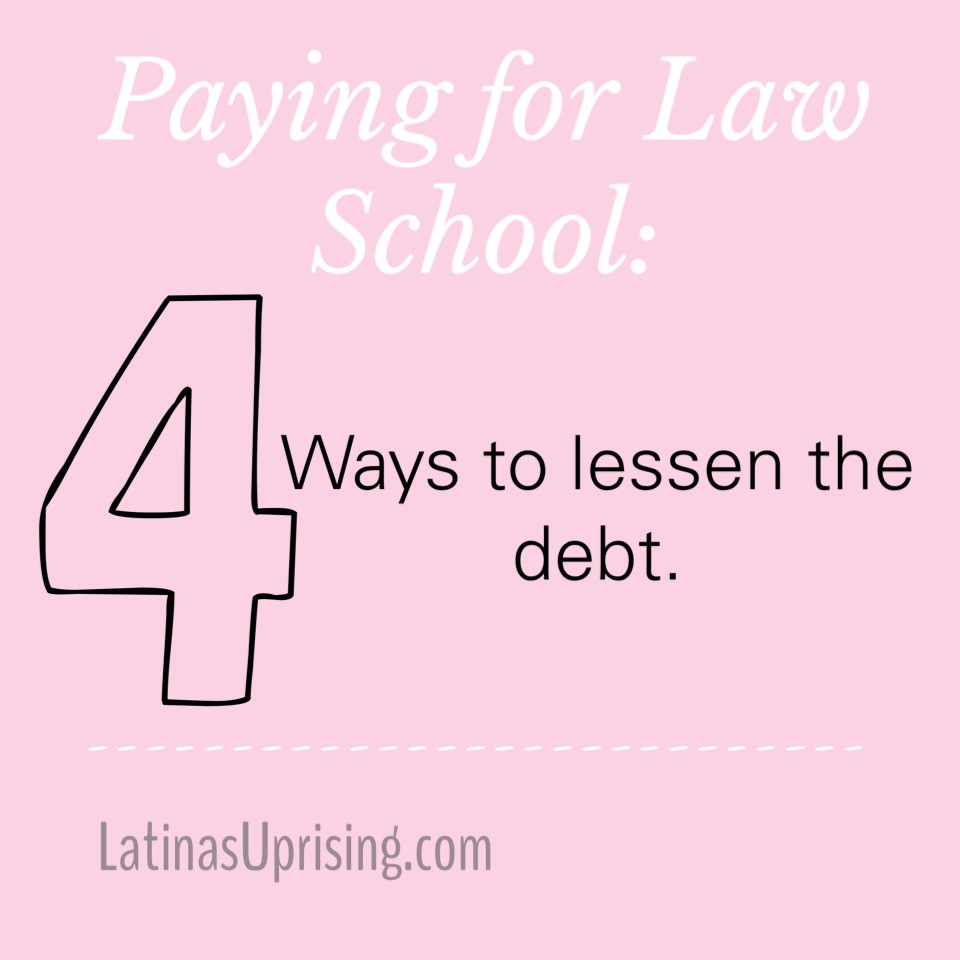Slaying Goliath: Paying for Law School
The biggest hinderance to applying, attending, graduating from law school is: money. It is ridiculously expensive. unnecessarily so, and I do believe a huge reason why the cost is so high is an attempt to keep the status quo in order. Because who suffers more by not having all types of capable and intelligent people earn these degrees? Not just the students that can’t afford to attend the school, but also those communities in which the people reside–but that is a post for another day.
While there is no excuse for the high cost, there doesn’t seem to be any real movement to make this an affordable degree. If you’re going to start law school (and finish) you have to accept that you will likely go into debt. But it can be manageable debt and you can decide upfront if it pinches a little or a lot by doing your research and making the decisions that benefit you.
If you’re a few years away there is a lot you can do to soften the blow (a post for next week). However, even if you’re starting law school next year, there are still things you can do to try to lessen the debt.
one. Understand the loan system. Really and truly understand what your loan options are (private/government/subsidized/unsubsidized) so that you make precise decisions on what loans to obtain. These loans will likely pay the majority of you tuition and living expenses so they will be a big chunk of your “income” for at least the first year (but realistically all three/four). If you’re still in undergrad go to your financial aid office and ask them to walk you through it. If you don’t have that resource, put in a lot of hours of online research until you feel confident in understanding your loan plans.
two. Research what the school can offer. Every school has a different (but often similar) system in giving out financial help. Some have lots of different scholarships; some have only a few; some have stipends; many have none; some have needs-based; others focus on merit. It all really depends on the school’s own financial plans and priorities. But see what your top school offers and apply to everything that you can! Yes, it may require extra personal statements, applications, interviews–but guaranteed money every year is a huge help! Beware, however, of scholarships contingent on grades. If you qualify and earn one–felicidades! But read the fine print.
three. Leverage your awards. A little secret is that many schools (once you’ve been accepted) are willing to match scholarship/aid from schools. If you’ve been accepted that means they want you, so there’s no harm in asking for them to up your financial aid. I did this and it was super awkward. Mainly because I hate discussing money with people, but also because I was so sure the Admission Director would laugh in my face. But a friend who was a 2L in law school encouraged me to do it. After inquiring about a match in a very shaky voice the director immediately agreed. They do this all the time. It felt weird but that extra annual money helped tremendously.
four. Consider getting the right job. If you’re attending full-time and are a first year student, you don’t want to work so much that you’re sacrificing your potential grades just to offset the cost of attending. I mean, if you have to do it, you have to do it. We all have to provide a roof over our heads. But. If you can make the sacrifice of not earning an income or working a “soft” job that doesn’t demand too much time (like work-study or tutoring); then really, truly consider it. Your first year grades are so important. In the long-term it’s not cost-effective to earn a couple extra hundred, but to lose out on a better grade. When I was a 1L, the ABA’s rule was that a first year student couldn’t work more than 20 hours a week. I had loans, scholarships, credit cards, and still needed money. I worked part-time at a clothing store on Michigan Ave and worked almost 20 hours a week. I was miserable. Aside from my feelings, the time I spent folding clothes was time other students used to study and learn. It was extra time that could have been spent reading supplementals, or preparing for summer internships. I did not prepare properly. Second semester, I found a work-study position and things were much better for me after that. The money didn’t stop my need for loans, but it provided an extra financial cushion and allowed me to focus on my studies.
We hope to discuss this more in the future because it’s such a vital topic that can’t be explained in one post, but hopefully this information can get you started! And while, realistically, very few will be able to graduate debt-free; until the system changes, your goal should be to do what you can to lessen the debt by any amount.


One Comment
Rookienotes
I love this article <3